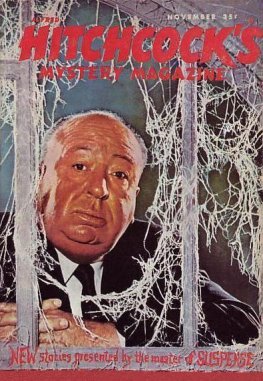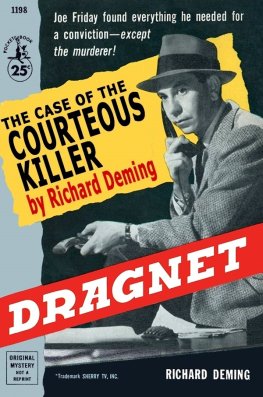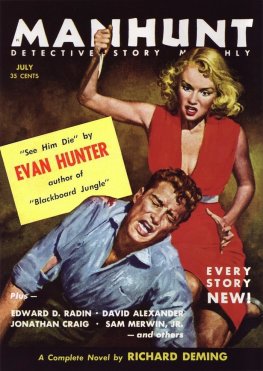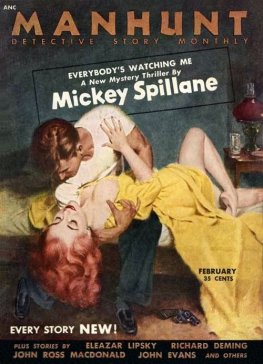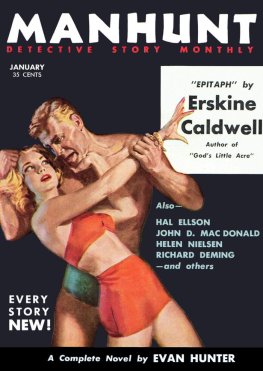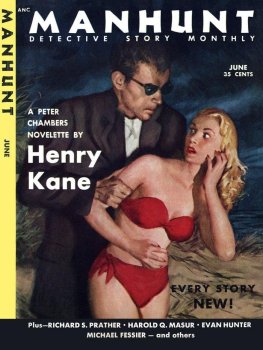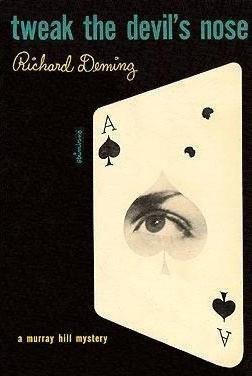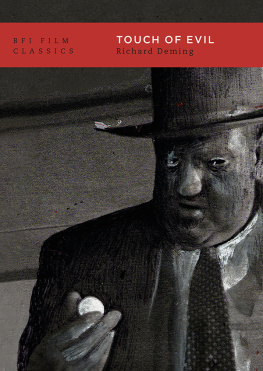Richard Deming - The Shape of Things That Came
Here you can read online Richard Deming - The Shape of Things That Came full text of the book (entire story) in english for free. Download pdf and epub, get meaning, cover and reviews about this ebook. City: New York, year: 1951, publisher: Fantasy House, genre: Science fiction. Description of the work, (preface) as well as reviews are available. Best literature library LitArk.com created for fans of good reading and offers a wide selection of genres:
Romance novel
Science fiction
Adventure
Detective
Science
History
Home and family
Prose
Art
Politics
Computer
Non-fiction
Religion
Business
Children
Humor
Choose a favorite category and find really read worthwhile books. Enjoy immersion in the world of imagination, feel the emotions of the characters or learn something new for yourself, make an fascinating discovery.
- Book:The Shape of Things That Came
- Author:
- Publisher:Fantasy House
- Genre:
- Year:1951
- City:New York
- Rating:5 / 5
- Favourites:Add to favourites
- Your mark:
- 100
- 1
- 2
- 3
- 4
- 5
The Shape of Things That Came: summary, description and annotation
We offer to read an annotation, description, summary or preface (depends on what the author of the book "The Shape of Things That Came" wrote himself). If you haven't found the necessary information about the book — write in the comments, we will try to find it.
The Shape of Things That Came — read online for free the complete book (whole text) full work
Below is the text of the book, divided by pages. System saving the place of the last page read, allows you to conveniently read the book "The Shape of Things That Came" online for free, without having to search again every time where you left off. Put a bookmark, and you can go to the page where you finished reading at any time.
Font size:
Interval:
Bookmark:
Richard Deming
The Shape of Things That Came
Had George Blade been a scientist like his Uncle Zeke, who invented the time-nightshirt, instead of merely a writer, he would have submitted to the College of Physicists an impersonal report on his trip fifty years into the future. And though in the year 1900 he was but twenty-three and possessed none of the literary fame he was destined to acquire, he probably would have been believed. Not because he was a writer, of course, but because he was the nephew of the late Dr. Ezekiel Herkheimer, the mere mention of whose name was enough to obtain audience with any scientist in the world.
But since he was a professional writer, strange experiences to George were material for fictional stories. It never even occurred to him he should report his trip as fact. He made it a love story about a man from 1900 and a girl from 1950.
He was rather proud of the story. As he waited in the outer office of Mr. Thomas Grayson, his editor, in response to a note from that gentleman, he anticipated nothing but friendly congratulations and a substantial check. When the secretary finally told him he could go in, he smoothed the long sideburns which added so much dash to his appearance, gave his heavy mustache a final tweak and opened the door with a smile of confidence on his face.
The smile died the moment he saw the editors expression.
You didnt like it, George said flatly, without waiting to be told.
Sit down, Mr. Blade, Thomas Grayson invited.
George seated himself on the edge of a chair, leaned forward to grip the head of his stick and resigned himself to the bad news.
Thomas Grayson was a round, cherubic man who looked too kindly to be an editor. As a matter of fact he was kindly, a quality he found a handicap in his work, for it caused him to waste much valuable time explaining in detail to disappointed authors just why their manuscripts were unacceptable.
You obviously put a lot of work into this story, Mr. Blade, the editor said. And you have quite a fanciful imagination. But, to put it bluntly, your background is entirely implausible.
Implausible! George echoed, having expected Mr. Graysons criticism to center around the storys plot, or perhaps a defective style. But, sir, I assure you the background is authentic to the last detail.
Mr. Grayson looked puzzled. We must be talking about two different scripts. I refer to The Time-Nightshirt, which I have here before me. He emphasized his statement by rapping the manuscript with his knuckles.
And so do I, sir.
The editor narrowed his eyes, cleared his throat and said with a touch of impatience, If you mean that the scientific wonders you describe are theoretically possible, I wont argue with you, for my scientific background is too limited to judge. I am concerned solely with potential reader reaction. The average reader simply wont believe in your year 1950.
George said, But Mr. Grayson, I meant it literally when I said the background was authentic. I was there.
Mr. Graysons head snapped up and he stared at the young author in astonishment. Realizing the strange effect of his remarkable statement, George hastened to explain.
You see, sir, my Uncle Zeke... Dr. Ezekiel Herkheimer, the physicist, that is... died January twelfth last, and since he died intestate, I inherited his entire belongings. Among them, in one of the trunksful of laboratory equipment, I found the time-nightshirt described in my story.
You mean, Mr. Grayson asked incredulously, there actually is such a piece of equipment?
Exactly as described, sir. In shape it is a common enough nightshirt, the head opening having the regulation two buttons to hold it snugly against the throat and keep out the night air. But the material seems to be some kind of odd metal... a metal so soft and pliable, the garment folds into a bundle small enough to fit a coat pocket. And the two buttons are not merely buttons, but movable dials. I do not understand the pages of technical notes I found with it, explaining my late uncles theory of time-space travel, but the operation of the nightshirt is very simple. The top dial projects you fifty years into the future, and the bottom dial returns you again.
For a long time Mr. Grayson examined George without saying anything. When he finally spoke, it was in the unnaturally calm voice of a man humoring a maniac. Why fifty years, particularly?
George shrugged. I dont know why. But it has only one speed forward and is entirely incapable of penetrating the past. Something to do with areas of limitation as nearly as I can make out from my uncles notes. I was rather disappointed when I discovered this, for at first I had visualized, trips millions of years into the future and millions of years into the past. But even with its limits, you have to admit its a remarkable invention.
Yes, it is that, the editor said nervously. But now if you will excuse me, Mr. Blade...
It suddenly registered on George that the man did not believe him.
Nettled, he said coldly, I assure you I am in full possession of my faculties, Mr. Grayson. Nor am I trying to play a practical joke. I actually have the time-nightshirt, and I actually leaped from the year 1900 to the year 1950. I was gone nearly two weeks.
Im sure you were, the editor said hastily.
George eyed him with suspicion. In a belligerent tone he said, It was the most amazing two weeks I ever spent. He added with less belligerence and more reflectiveness, And the most embarrassing, in a sense.
Embarrassing? Mr. Grayson asked cautiously.
Embarrassing, George repeated. In the first place, Uncle Zekes notes, contained no provisions for taking along anything but myself and the nightshirt. Consequently I arrived in the year 1950 a pauper and suitably attired only for bed.
Mr. Grayson emitted a strained laugh.
Fortunately I was able to remedy this situation almost immediately. But my embarrassment persisted during my entire stay for a different reason.
What was that? Mr. Grayson asked, apparently deciding George was a harmless lunatic, and beginning to become interested.
George said, I have what is supposed to be an excellent education, and always imagined that if I got up against it, I could make a living in any number of genteel ways. But in the year 1950 I was fitted to perform only the most menial tasks. In order to live I had to work, and the only work I could find which I was capable of performing was as a common laborer digging a sewer line.
This time Mr. Graysons laugh, while still unbelieving, was not even strained. How did you manage to clothe yourself on arrival? he asked.
Im afraid I stooped to theft, George admitted. You see, I live in a suite at the Chelsea, and since it is a relatively new building, I assumed it would still be standing in fifty years. I therefore made the time leap in my own bedroom, picking midnight as the best hour to arrive in 1950. Fortunately the tenant occupying the suite which had been mine fifty years before was out when I materialized. Finding his clothing an approximate fit, I shamelessly appropriated what I required. Probably the man is still puzzled, for I returned the clothing two weeks later, when I transmitted myself back to 1900. Incidentally, my second impression of the year 1950 was amazement that aside from boots, trouser widths and cravats, mens styles had remained unchanged for fifty years.
Your second impression? Mr. Grayson said. What was your first?
Also a feeling of amazement. The room was dark when I arrived, and I automatically felt for the gas mantle near the door. Instead my hand encountered a flat metal plate from which a tiny switch handle protruded. Experimentally I pushed it, and light sprang into the room.
The editor looked at him blankly.
They had perfected the incandescent lamp, George explained.
Font size:
Interval:
Bookmark:
Similar books «The Shape of Things That Came»
Look at similar books to The Shape of Things That Came. We have selected literature similar in name and meaning in the hope of providing readers with more options to find new, interesting, not yet read works.
Discussion, reviews of the book The Shape of Things That Came and just readers' own opinions. Leave your comments, write what you think about the work, its meaning or the main characters. Specify what exactly you liked and what you didn't like, and why you think so.

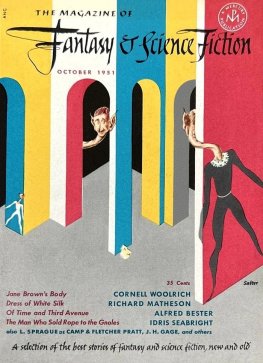

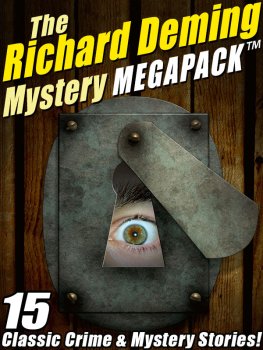
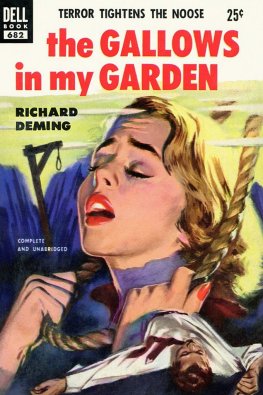

![Richard Deming - Whistle Past the Graveyard [= Give the Girl a Gun]](/uploads/posts/book/864792/thumbs/richard-deming-whistle-past-the-graveyard-give.jpg)
